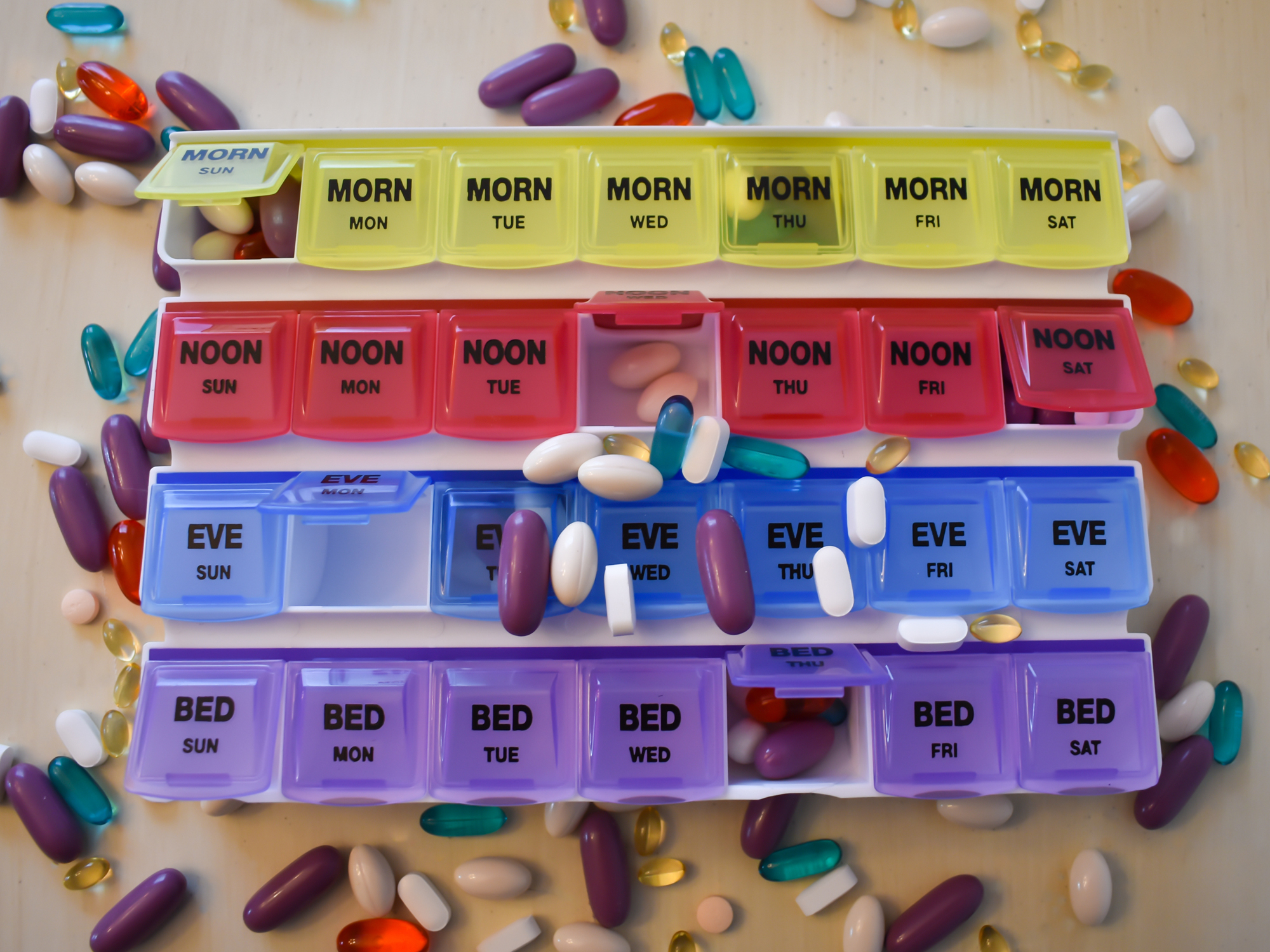Get Easy Health Digest™ in your inbox and don’t miss a thing when you subscribe today. Plus, get the free bonus report, Mother Nature’s Tips, Tricks and Remedies for Cholesterol, Blood Pressure & Blood Sugar as my way of saying welcome to the community!
6 common medications that harm your kidneys

Though you may not think about your kidneys all too often, they do play a vital role in your health.
One of their major roles is as your body’s filtering and waste disposal system…
Almost 7,000 ounces of blood cycles through the kidneys each day. And in their workings they produce urine from unwanted chemicals, excess fluid or waste.
It’s common practice these days to take medications for our ailments. And while medications may be designed to assist your body in some way, they also have to take a trip to the kidneys for filtering.
And if you think your kidneys are “safe” from the effects of those drugs, think again — around 20 percent of acute kidney failure (nephrotoxicity) is caused by prescription medications.
That’s why you should know about six common medications that can damage the kidneys more than others…
Statins
High doses of the drugs known as statins seriously increase your risk of kidney damage. People taking relatively large amounts of these pharmaceuticals are 34 percent more vulnerable to a condition known as acute kidney injury (AKI). Every year, AKI kills about 40,000 people in the United States. Rosuvastatin, atorvastatin and simvastatin are statin drugs.
Antibiotics
Renal tubular cells are key players in kidney filtration, making them particularly vulnerable to toxic effects that drugs may expose them to. Tobramycin, from the antibiotic class known as aminoglycosides, can cause higher toxicity to the filtration cells.
Antimicrobial medications known as sulfonamides (thiazide diuretics, acetazolamide, sulfonylureas and some COX-2 inhibitors), can promote swelling and inflammation of the kidneys due to crystals they create that the kidneys can’t dissolve.
If you must take antibiotics on occasion, make sure you know how to take them safely.
Diuretics
Hydrochlorothiazide and furosemide are two medications commonly taken to reduce swelling and blood pressure. But unfortunately they lead to dehydration, which promotes swelling and inflammation in the kidneys.
Antivirals
Acyclovir, a drug used to treat herpes, shingles and chickenpox, produces crystals that the kidneys can’t filter. This can lead to urine blockage and cause harm to the kidneys.
Anti-inflammatories
Whether you’re using prescription or over-the-counter options, non-steroidal anti-inflammatory drugs (NSAIDs — ibuprofen, naproxen sodium and ketoprofen) cause the blood vessels leading into the kidneys to narrow. When there is decreased blood flow, the tissues in the kidneys become susceptible to damage or death.
Taking anti-inflammatories at high doses or for prolonged periods is known to cause chronic kidney disease (chronic interstitial nephritis), sudden kidney failure, and progressive kidney damage.
Analgesics
Analgesics (aspirin and acetaminophen) are common over-the-counter medications taken for pain and fever. Like anti-inflammatories, they reduce blood flow to the kidneys and can impair kidney function if used over prolonged periods.
So how do you avoid kidney damage from drugs?
According to research, most adverse events due to medications occur due to errors with a prescription, lack of monitoring of the medication and errors in taking the drug appropriately.
But that’s not always the case. Numerous drugs have been fast-tracked by the FDA into the pharmaceutical market, only to be yanked off the shelves or denied prescription after adverse effects, even deaths, were reported.
Even OTC drugs that seem harmless, like NSAIDs (which have been tied to heart attack) have been shown to have a dark side.
The best advice is to consider whether you really need to take these medications. When possible choose natural remedies so you can minimize your use of medications overall — and the dangers they carry.
Foods, spices and mindful health practices can help alleviate pain and inflammation.
When taking medications make sure you drink adequate fluids (6-8 glasses of water a day) to prevent dehydration and promote optimal kidney filtering.
Editor’s note: Have you heard of EDTA chelation therapy? It was developed originally to remove lead and other contaminants, including heavy metals, from the body. Its uses now run the gamut from varicose veins to circulation. Click here to discover Chelation: Natural Miracle for Protecting Your Heart and Enhancing Your Health!
Sources:
- Naughton CA. Drug-Induced Nephrotoxicity. — Am Fam Physician. 2008;78(6):743-750.
- What your kidneys do — Kidney.org.au. (2017). Kidney Health Australia. Retrieved 3 Aug, 2017.
- Sulfonamides — (2017). Drugs.com. Retrieved 3 Aug, 2017.
- Tobramycin Side Effects — (2017). Drugs.com. Retrieved 3 Aug, 2017.
- 6 Medications That Can Harm the Kidneys — Rodriguez T. (2017). Medshadow.org. Retrieved 3 Aug, 2017.
- Gurwitz JH, et al. Incidence and preventability of adverse drug events among older persons in the ambulatory setting. — JAMA. 2003;289(9):1107-16.













